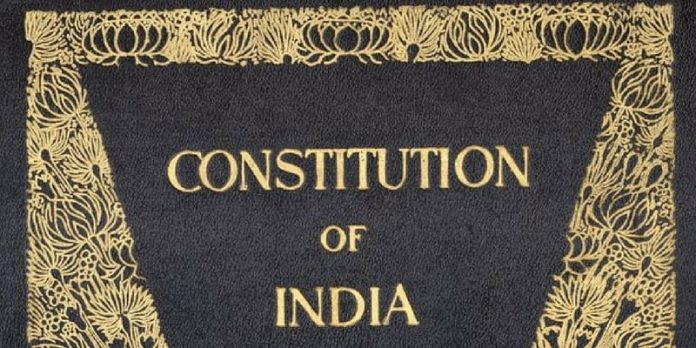- By now, it is quite a well-established moniker in the context of the Indian democracy that the Constitution’s three arms vis-à-vis the legislature, the executive, and the judiciary have clearly demarcated responsibilities without encroaching onto other’s domains whilst discharging duties. If the legislature and the executive as people’s representatives are answerable to the Parliament, the judiciary likewise is answerable to the Constitution itself upholding the law of the land. The democratic form of governance entails the welfare of the people is accorded paramount importance in line with the expectations of any welfare state. No questions there.

PC: Prashant Hingorani
- The judiciary is expected to step in whenever any breach is noticed vis-à-vis the defined guidelines as enunciated in the Constitution is also indisputable. No wonder, the Indian citizens too look up to the Supreme Court as the last bastion to not only seek remedy from possible violation of fundamental rights but also receive timely relief from adjudication on any matter disconcerting the individuals’ dignity of living. The higher judiciary has lived up to the expectations of the citizens is stating the obvious save for a few issues here and there. And the topic never fails to make it to the headlines garnering attention and deliberation of distinct proportions.
- One such instance occurred recently. You may be aware that the Chief Justice of India NV Ramana made an interesting observation during his recent speech mentioning that the judiciary must function as an independent organ of governance, answerable to the Constitution alone. All sensible Indians would agree to what the CJI had to say on the answerability part. Further elaborating on the topic, he also mentioned that such ideal functioning is made difficult by the party in the office expecting judicial endorsement of every governmental action and opposition parties likewise expecting support for their causes.

PC: Zee Media Bureau
- Nonetheless, judging by the parameters of constancy and transparency, it is perhaps equally indisputable that painful gaps remain in courts’ answerability to the Constitution that is entirely of their own doing. For instance, despite Article 20(2) safeguarding against double jeopardy, and also an SC judgment that subjecting an individual to numerous proceedings based on the same cause is violative of fundamental rights, the clubbing of multiple FIRs into one jurisdiction is yet to become a procedural commonplace. Erstwhile spokesperson of BJP Nupur Sharma is just the latest to experience this. In a much more widespread malaise, the elemental concept of bail not jail has yet to be internalized by the judicial labyrinthine too.
- Most importantly, on the transparency front, judicial appointments themselves present the most glaring gaps. Recollect how Justice Chelameswar had written in a strongly worded minority opinion when SC struck down the NJAC Act. He had written that transparency is an aspect of rationality and the need for transparency is more in the case of the appointment process. The judgment too had underlined the need to enhance the collegium’s transparency. Despite this, great opacity persists in appointments as also in case listing, respectively. Moreover, Constitutional matters like challenges to the nullification of Article 370 before multi-judge benches continue to be delayed with no explanation forthcoming. Needless to mention, these challenges deserve to be addressed judiciously and expeditiously. Indeed, it can do a better job of keeping faith with the Constitution and also ensuring the rights of the citizens and their civil liberties as well.






